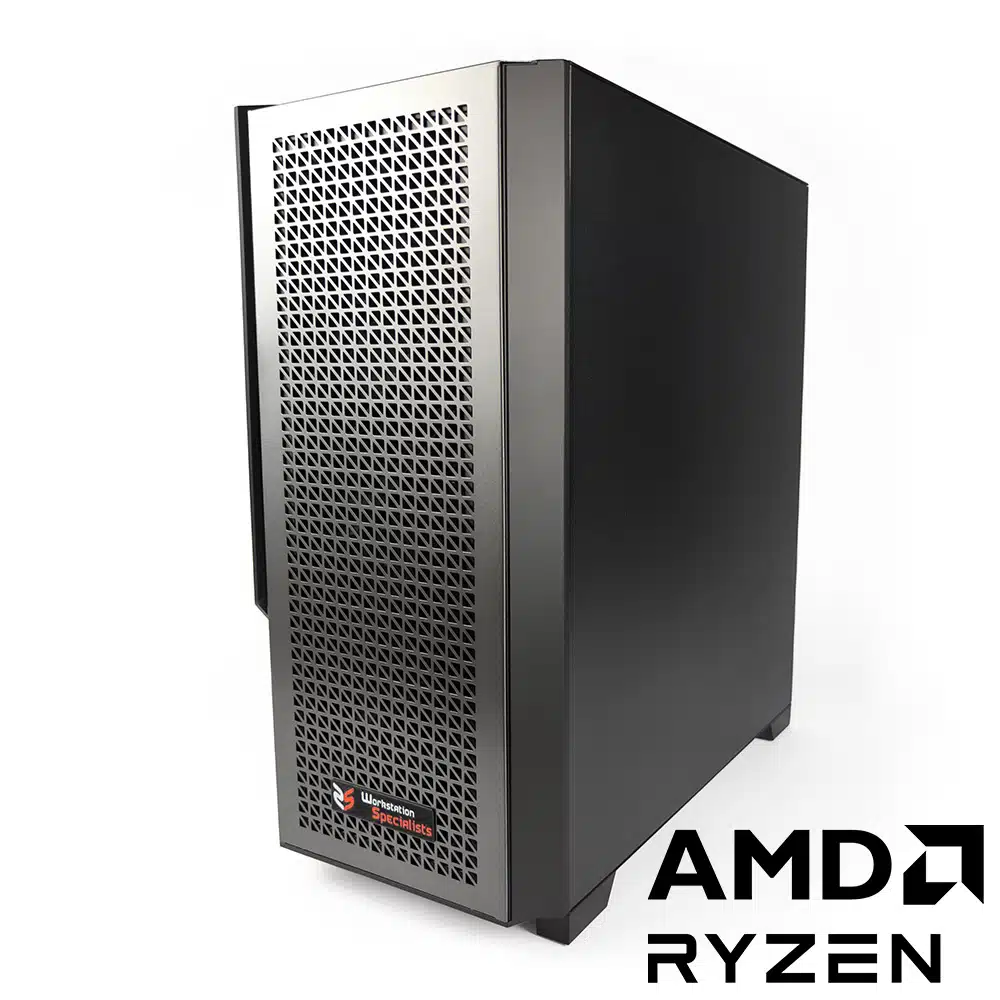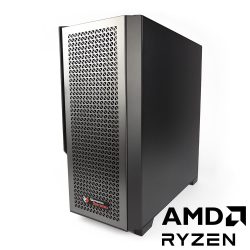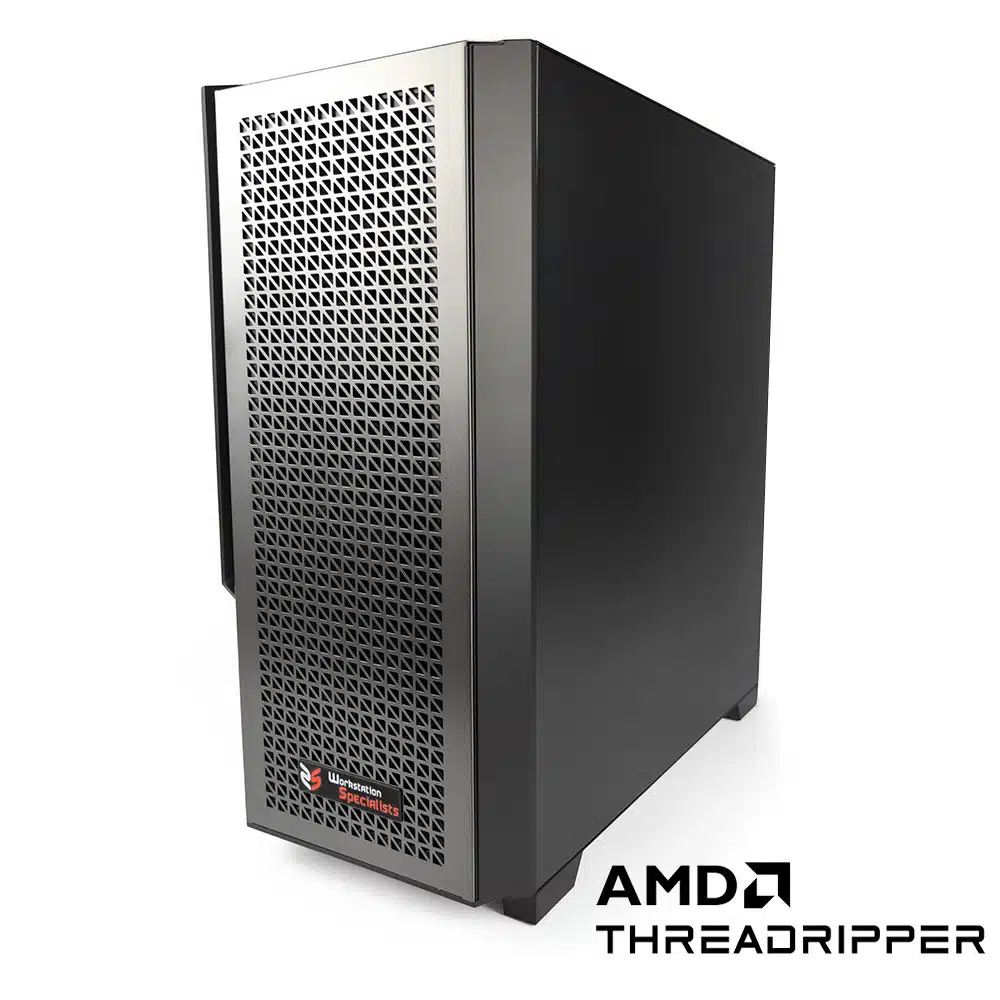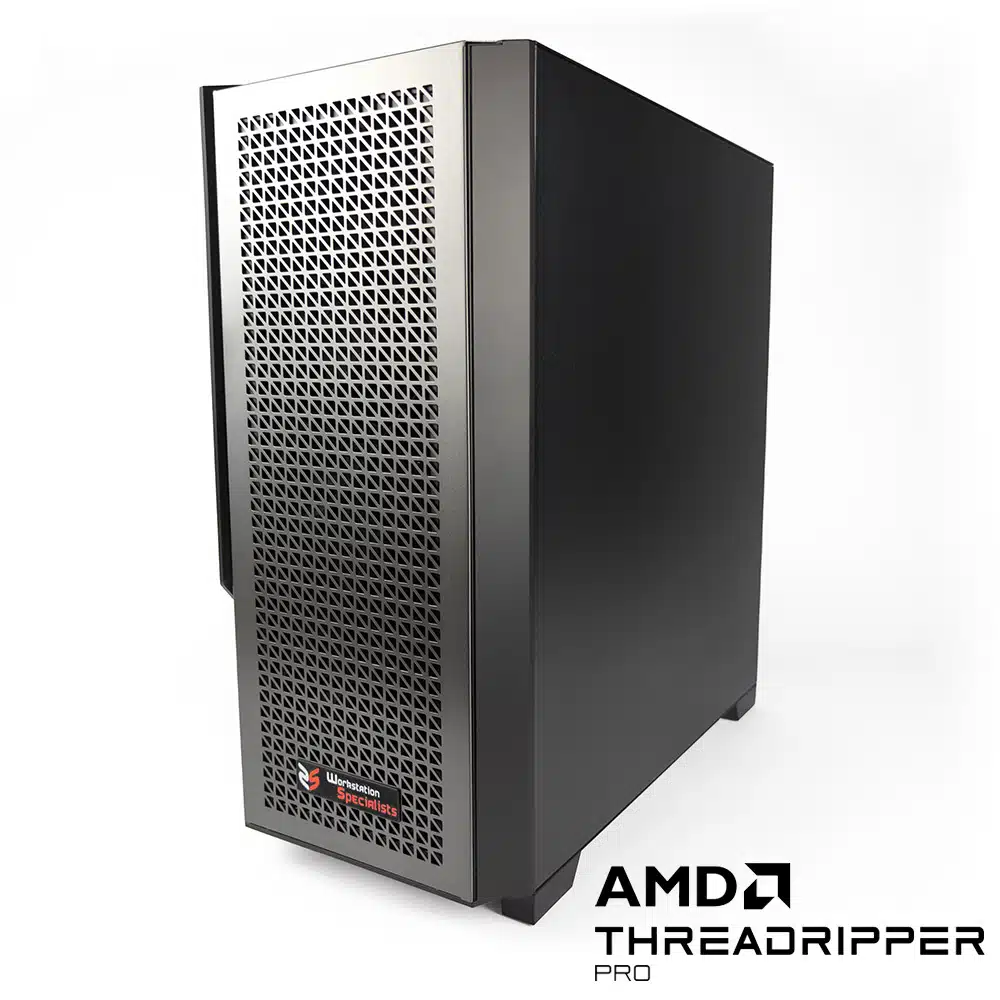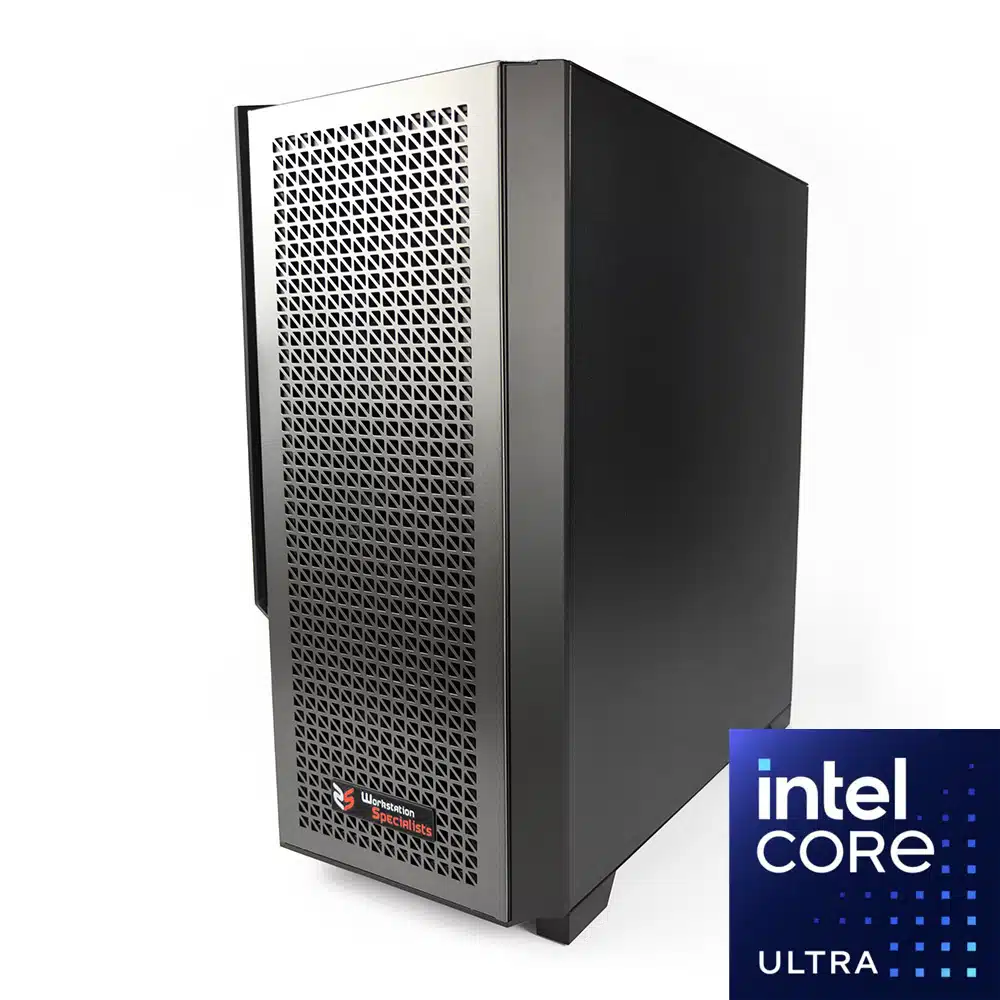Autodesk Maya is an industry-leading software widely used for 3D modelling, animation, simulation, and rendering. Whether you’re working on creating models for films, games, or architectural designs, selecting the right workstation for Autodesk Maya is crucial for maximising performance and ensuring a smooth workflow. A workstation for Autodesk Maya tailored to your specific needs can significantly enhance productivity and help you achieve professional results faster and more efficiently.
In this updated guide, we’ll walk you through the essential hardware components to consider when building or upgrading your workstation for Autodesk Maya in 2025, ensuring you have the power to tackle even the most complex projects.
Why Choose a Dedicated Workstation for Autodesk Maya?
A dedicated Maya workstation provides several advantages over a standard desktop PC, especially for professionals working on high-end 3D modelling, rendering, and animation. These advantages include:
- Optimised Performance: Designed specifically for demanding tasks, a custom-built workstation for Autodesk Maya can run Maya and other creative software smoothly, even under heavy workloads.
- Increased Efficiency: With the right hardware, you can handle large scenes, complex simulations, and high-resolution renders without significant delays.
- Reliability and Stability: A workstation for Autodesk Maya ensures long-term reliability, reducing system crashes and downtime.
Whether you’re a solo artist or part of a larger team, investing in a workstation for Autodesk Maya tailored to your specific needs will help you stay competitive and productive.
Key Hardware Components for a Workstation for Autodesk Maya
When choosing the best workstation for Autodesk Maya, there are several critical components to consider. Let’s dive into the most important ones:
1. Processor (CPU) – Powering Your Workflow
Autodesk Maya is a processor-intensive application, particularly for tasks like 3D modelling and animation. The most important factor when selecting a workstation for Autodesk Maya CPU is clock speed, as many operations within Maya are single-threaded. This means that higher clock speeds generally result in faster performance for tasks like modelling, animating, and simulating.
In 2025, the best options are:
- Intel Core Ultra 7 and 9 (series 2): These new processors feature excellent single-core performance, making them ideal for tasks like animation and modelling in Maya. For those working on complex scenes, the Core Ultra 9 CPUs offer higher base and turbo boost speeds (up to 6GHz), ensuring top-notch performance across a range of creative tasks.
- AMD Ryzen 9 9000 series: The AMD Ryzen 9 9950X is a powerhouse with 16 cores and 32 threads, offering fantastic single-core performance and significant multi-core capabilities for rendering tasks. It’s a great choice for users who need to balance modelling, animation, and rendering without sacrificing performance.
For users focused on rendering or simulation-heavy tasks, the multi-core capabilities of AMD Ryzen Threadripper PRO 7000 Series CPUs provide a perfect solution, with core counts that go up to 96. These processors are ideal for GPU-accelerated rendering workflows or complex simulations that demand high parallel processing power.
2. Graphics Card (GPU) – Enhancing Your Visuals
While Maya is CPU-heavy for many tasks, its graphics demands are significant, particularly when it comes to 3D viewport performance and GPU-accelerated rendering. A powerful GPU is necessary to achieve smooth performance, especially when working with detailed models and large scenes.
In 2025, the new NVIDIA GeForce 50 Series cards and NVIDIA RTX Workstation Ada Generation Cards offer the best performance:
- NVIDIA GeForce RTX 5090/5080: The GeForce 50 Series offers improved ray tracing capabilities, AI acceleration, and superior frame rates, making it a great choice for both general Maya workflows and GPU-accelerated rendering.
- NVIDIA RTX Workstation Ada Generation Cards (RTX 6000 Ada/RTX 5000 Ada): For professional users working in industries like film production, architecture, and engineering, the NVIDIA RTX Ada Generation Workstation cards (e.g., RTX 6000 Ada and RTX 5000 Ada) provide enhanced performance and reliability for demanding Maya workflows. With larger VRAM configurations (up to 48GB) and better optimisation for long-term use, these cards ensure smoother handling of complex models, large-scale simulations, and high-resolution renders.
While GeForce RTX 50 Series graphics cards are excellent for most Maya workflows, users working in GPU rendering applications may benefit from the NVIDIA RTX Workstation Ada Generations’ additional VRAM. Professional workstation graphics are also certified by Autodesk and optimised for professional environments.
3. Memory (RAM) – Multitasking Made Easy
When working on large Maya scenes, you’ll need plenty of RAM to keep things running smoothly, especially when working with high-resolution textures or multiple applications.
- 32GB RAM: This is typically sufficient for most Maya workflows, including modelling and animation.
- 64GB RAM: If you’re working with complex scenes, high-resolution assets, or large-scale simulations, 64GB of RAM is recommended to prevent slowdowns and crashes.
- DDR5 RAM: As DDR5 RAM becomes the standard in 2025, it offers significantly faster speeds and improved bandwidth compared to DDR4. This will further enhance multitasking and data throughput, which is crucial for demanding applications like Maya.
If your budget allows, opting for ECC (Error-Correcting Code) RAM can add an extra layer of reliability for mission-critical tasks, though it’s typically only necessary for high-end professional environments.
4. Storage – Fast and Reliable
Storage plays a crucial role in Maya’s performance, particularly when it comes to load times, file saving, and rendering speeds.
- Primary Drive: Invest in a PCIe NVMe SSD (1TB or more) to store your OS and Maya installation. This will ensure faster load times and smooth operation.
- Secondary Storage: A secondary SSD (2TB or more) can be dedicated to your active project files. This will significantly reduce file transfer times compared to traditional HDDs.
- Long-Term Storage: For bulk storage, HDDs or NAS (Network Attached Storage) systems are ideal for archiving finished projects or storing large datasets that don’t need to be accessed regularly.
5. Cooling and Power Supply – Keeping Your System Stable
Maintaining a stable temperature is crucial when working with demanding applications like Maya. A well-cooled system will ensure consistent performance during extended work sessions.
- Cooling: Invest in quality air or liquid cooling systems to prevent overheating. All-in-one liquid coolers are often the best choice for high-performance CPUs like the Intel Core Ultra or AMD Ryzen Threadripper series.
- Power Supply (PSU): Choose a PSU with enough Wattage to support all your components and ideally 80 PLUS Gold or Platinum rated to ensure stable power delivery, especially when using high-end components like multiple GPUs or high-core-count CPUs.
6. Peripherals – Optimise Your Workflow
Your workstation setup isn’t complete without the right peripherals to enhance your productivity and comfort.
- Monitors: A 4K UHD monitor with 99% AdobeRGB or DCI-P3 colour accuracy is recommended for precise colour grading and detailed 3D work.
- Input Devices: A graphics tablet (like the Wacom Intuos Pro) is perfect for precise modelling, sculpting, and texture painting.
- Keyboard and Mouse: An ergonomic keyboard and a responsive, customisable mouse are key to reducing strain during long editing sessions.
- External Storage: Thunderbolt 4 or USB 4.0 external SSDs are ideal for fast data transfer between workstations, backups, or portable projects.
Conclusion
In 2025, building the perfect workstation for Autodesk Maya requires a balanced selection of components, including the latest Intel Core Ultra CPUs, NVIDIA GeForce 50 Series GPUs, and high-performance DDR5 RAM. For professional environments demanding even more reliability and power, NVIDIA RTX Workstation Ada Generation Cards offer unparalleled performance for demanding Maya workflows, from rendering to complex simulations.
Ready to upgrade your setup? Contact us today at +44 (0) 1332 280 380 or email us at [email protected] for expert advice and assistance in configuring the best workstation for Autodesk Maya. Our team of consultants will help you design the perfect system tailored to your unique needs and ensure that you stay ahead of the competition.

